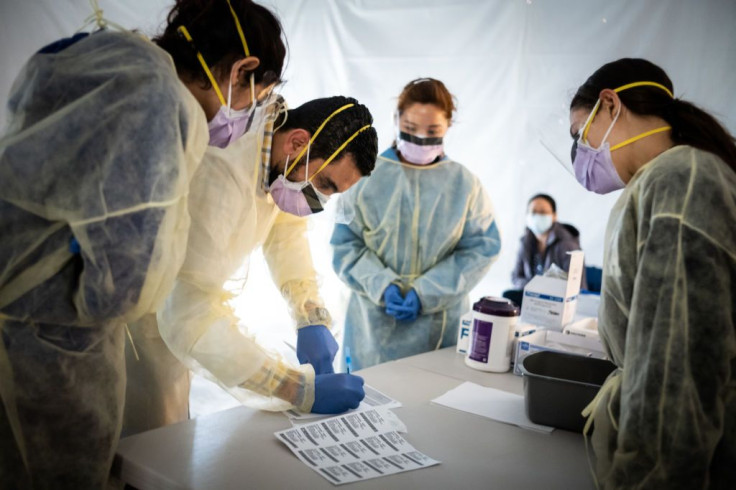
The number of health care workers across the globe getting infected while treating patients of coronavirus had been rising exponentially, further putting stress on an already overwhelmed healthcare system in several countries. Taking a step towards ensuring the safety of health care workers, the Food and Drug Administration has granted emergency approval for the first saliva-based coronavirus test.
Till now, a person was tested for coronavirus and other symptoms by using a long swab, which is inserted far into a patient's nose or throat and twisted for seconds. More often than not, this triggers strong reactions like sneezing, gaging, and coughing, putting the health worker(s) conducting the test in the danger of contracting COVID-19.
But with the saliva-based test, the risk of infection for health care workers will potentially reduce. Developed by researchers at New Jersey's Rutgers University, along with a private lab in the state and Utah company Spectrum Solutions, the test was approved on Monday and would only require a patient to spit into a tube. This sample would then be analyzed and a diagnosis would be made accordingly.
"Saliva testing will help with the global shortage of swabs for sampling and increase testing of patients, and it will not require health care professionals to be put at risk to collect samples," said Rutgers scientist and professor Andrew Brooks. "Saliva testing will also be important for people who are in quarantine because they don't know how long it will be until they are no longer infectious. This will allow health care workers to release themselves from quarantine and safely come back to work."
"The impact of this approval is significant," he added. "It means we no longer have to put health care professionals at risk for infection by performing nasopharyngeal or oropharyngeal collections.” He also stressed that with the employment of saliva-based testing, hospitals can now “preserve precious personal protective equipment for use in patient care instead of testing.” “All of this combined will have a tremendous impact on testing in New Jersey and across the United States,” he added.
As of now, the test will be first made available in select New Jersey testing sites by April 15 at the earliest.
© 2025 Latin Times. All rights reserved. Do not reproduce without permission.



